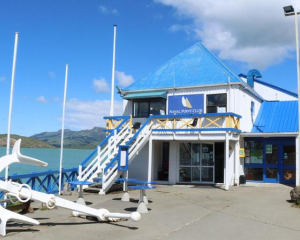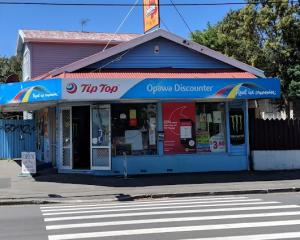
Regions such as Kerikeri, in Northland, and Nelson-Motueka have a special strategic importance in the decision expected to be made over the next two days on whether to attempt to eradicate the vine canker, or simply seek to manage it to mitigate the worst effects.
Biosecurity Minister David Carter said his staff were now checking orchards far from the Bay of Plenty, in regions such as Motueka and Northland because knowledge of whether the bacteria had spread there was key to any decision on eradication.
If key customers -- such as China, which takes 7 percent of New Zealand kiwifruit exports -- insist on having fruit certified as free of the PSA bacteria, fruit sent to that market will have to come from a "disease-free zone", and at present Northland and the top of the South Island are currently the best hopes.
"China would say that fruit with PSA is excluded from import, but that wouldn't necessarily mean the whole of New Zealand," Zespri chief executive Lain Jager told NZPA. "If we could say PSA was only in the Bay of Plenty ... we have Motueka at the top of the South Island and Kerikeri, major growing areas a long way outside the Bay."
So far, growers asked to check their own vines for tell-tale leaf spots and weeping cankers on vines have sent Zespri 100 emails, 65 of them with photographs of suspected symptoms,and 35 confirming their orchards are clear of visible symptoms.
The Ministry of Agriculture and Forestry is investigating 20 properties, including ones they have found as staff have canvassed properties around the two initial finds -- on gold kiwifruit orchards over the road from each other -- at Te Puke. Both those orchards, and a third 10km away have been confirmed as infected, and a further two already under movement control are today expected to be confirmed as infected.
MAF and Zespri have declined to identify the infected orchards, though growers are being given information about the localities affected.
At two of the three confirmed orchards, staff will today begin treating vines with a copper spray that will kill a lot of the bacteria on the leaves and the ground under the vines, reducing the amount of infective material which might spread the outbreak by way of wind or rain-splashes.
Asked what it was doing to reduce the chance of pallets, crates or equipment to spread the infection from the Bay of Plenty to other growing regions, Zespri told NZPA that it had asked all growers to be careful about orchard hygiene, and to reduce movement between orchards of both equipment and materials.
Mr Carter said a decision on eradication will be made by the end of the week.
"While the preferred option of dealing with PSA is eradication, this decision can only be made once the spread of the disease is determined," he said. "We hope to know this by Friday afternoon."
And the minister said that while the copper spray could slow the spread of the disease, it would only be applied to orchards which were confirmed to be infected.
NZPA WGT kca mgr












